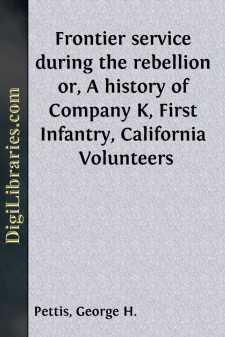Categories
- Antiques & Collectibles 13
- Architecture 36
- Art 48
- Bibles 22
- Biography & Autobiography 816
- Body, Mind & Spirit 145
- Business & Economics 28
- Children's Books 17
- Children's Fiction 14
- Computers 4
- Cooking 94
- Crafts & Hobbies 4
- Drama 346
- Education 58
- Family & Relationships 59
- Fiction 11834
- Foreign Language Study 3
- Games 19
- Gardening 17
- Health & Fitness 34
- History 1378
- House & Home 1
- Humor 147
- Juvenile Fiction 1873
- Juvenile Nonfiction 202
- Language Arts & Disciplines 89
- Law 16
- Literary Collections 686
- Literary Criticism 179
- Mathematics 13
- Medical 41
- Music 40
- Nature 179
- Non-Classifiable 1768
- Performing Arts 7
- Periodicals 1453
- Philosophy 66
- Photography 2
- Poetry 897
- Political Science 203
- Psychology 45
- Reference 154
- Religion 516
- Science 126
- Self-Help 85
- Social Science 82
- Sports & Recreation 34
- Study Aids 3
- Technology & Engineering 59
- Transportation 23
- Travel 463
- True Crime 29
Our website is made possible by displaying online advertisements to our visitors.
Please consider supporting us by disabling your ad blocker.
Frontier service during the rebellion or, A history of Company K, First Infantry, California Volunteers
by: George H. Pettis
Categories:
Description:
Excerpt
The first battle of Bull Run had been fought. The government had become satisfied that the slaveholder's rebellion was not to be put down with seventy-five thousand men. The Union people of the United States now fully realized that the rebels were to use every effort on their part towards the establishment of the Confederacy, and the men of the north, on their part, were ready to "mutually pledge to each other our lives, our fortunes, and our sacred honor" to preserve the government as their fathers before them had pledged themselves to establish it. The loyal States were ready to respond to any demand made upon them by the government, and there were none more anxious to do their duty to the old flag than the Union men of California.
The people of that far distant part of our country were, in the early days of our "late unpleasantness," stirred to their very depths. A large portion of the inhabitants had emigrated from the southern States, and were, therefore, in sympathy with their brethren at home. General Joe Johnston was in command of the military department, and a majority of the regular officers under him were sympathizers with the rebellion, as were a majority of the State officers. The United States gunboat "Wyoming," lying in the harbor of San Francisco in the early part of '61, was officered by open advocates of secession, and only by the secret coming of General E. V. Sumner, who arrived by steamer one fine morning in the early part of '61, totally unknown and unannounced, and presenting himself at the army headquarters on Washington street, San Francisco, without delay, with, "Is this Gen. Johnston?" "Yes, sir." "I am General E. V. Sumner, United States Army, and do now relieve you of the command of this department," at the same time delivering the orders to this effect from the War Department at Washington, were the people of the Pacific States saved from a contest which would have been more bitter, more fierce, and more unrelenting than was exhibited in any part of the United States during all those long four years of the war.
As I have said before, the prompt and secret action of the government and that gallant old soldier, General E. V. Sumner (for you all will remember that California had no railroads and telegraphs in those days), prevented civil war there. The secessionists, who were preparing to take possession of the property of the government in that department and turn the guns of Alcatraz, Fort Point and the Presidio upon the loyalists, were taken completely aback; they delayed action. General Sumner took all precautions against surprise, and the Union men of the Pacific States breathed free again, for civil war had been driven from their doors. Many of the secession leaders, with General Joe Johnston, seeing their plans miscarry, left the State shortly after, and did service in the Confederate armies.
On the steamer from the States that brought the news to California of the disaster at Bull Run, came orders from President Lincoln for that State to furnish its quota of men for the Union army. The same afternoon, the Franklin Light Infantry, a militia company, composed of printers only, held a meeting at its armory on Sacramento street, and voted unanimously to offer their services to the government, which was accordingly done, and they were the first company that was mustered into the United States service in California, and was afterwards known as Company B, First Infantry, California Volunteers, and were officered as follows: Captain, Valentine Drescher; First Lieutenant, Francis S. Mitchell; Second Lieutenant, George H. Pettis. Other companies were soon formed, and the regiment, with nine companies, went into camp of instruction at Camp Downey, near Oakland....


